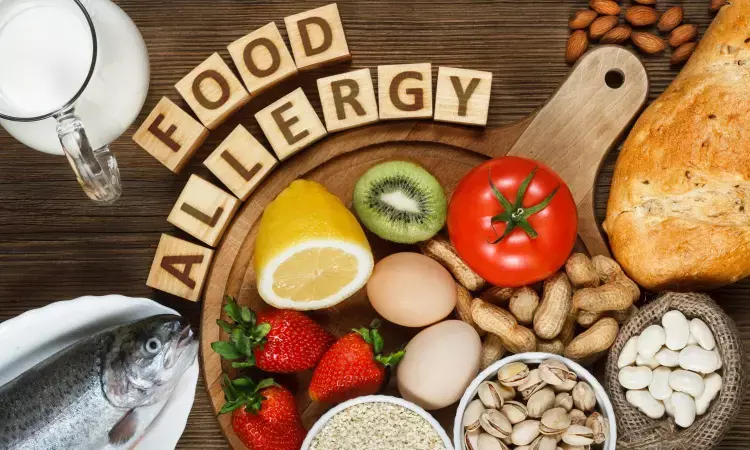- Home
- Medical news & Guidelines
- Anesthesiology
- Cardiology and CTVS
- Critical Care
- Dentistry
- Dermatology
- Diabetes and Endocrinology
- ENT
- Gastroenterology
- Medicine
- Nephrology
- Neurology
- Obstretics-Gynaecology
- Oncology
- Ophthalmology
- Orthopaedics
- Pediatrics-Neonatology
- Psychiatry
- Pulmonology
- Radiology
- Surgery
- Urology
- Laboratory Medicine
- Diet
- Nursing
- Paramedical
- Physiotherapy
- Health news
- Fact Check
- Bone Health Fact Check
- Brain Health Fact Check
- Cancer Related Fact Check
- Child Care Fact Check
- Dental and oral health fact check
- Diabetes and metabolic health fact check
- Diet and Nutrition Fact Check
- Eye and ENT Care Fact Check
- Fitness fact check
- Gut health fact check
- Heart health fact check
- Kidney health fact check
- Medical education fact check
- Men's health fact check
- Respiratory fact check
- Skin and hair care fact check
- Vaccine and Immunization fact check
- Women's health fact check
- AYUSH
- State News
- Andaman and Nicobar Islands
- Andhra Pradesh
- Arunachal Pradesh
- Assam
- Bihar
- Chandigarh
- Chattisgarh
- Dadra and Nagar Haveli
- Daman and Diu
- Delhi
- Goa
- Gujarat
- Haryana
- Himachal Pradesh
- Jammu & Kashmir
- Jharkhand
- Karnataka
- Kerala
- Ladakh
- Lakshadweep
- Madhya Pradesh
- Maharashtra
- Manipur
- Meghalaya
- Mizoram
- Nagaland
- Odisha
- Puducherry
- Punjab
- Rajasthan
- Sikkim
- Tamil Nadu
- Telangana
- Tripura
- Uttar Pradesh
- Uttrakhand
- West Bengal
- Medical Education
- Industry
Anaphylaxis Symptoms of most infants due to food allergy resolve with epinephrine

Food allergy among infants is a cause of anxiety for parents. Further there has not been a lot of research into the presentation of anaphylaxis in infants.
A new study being presented at this year's American College of Allergy, Asthma and Immunology (ACAAI) Annual Scientific Meeting in Louisville, KY shows that, in infants aged 0-24 months who presented to the emergency department for anaphylaxis, few required hospitalization and most were able to go home after a few hours of observation.
"We reviewed charts for 169 patients under the age of 2 who presented with anaphylaxis and found that symptoms were reported in the skin/mucosal (97.6%), gastrointestinal (74.6%), respiratory (56.8%) and cardiovascular (34.3%) systems", said Colleen Shannon, MD, MPH, ACAAI member and lead author of the study. "Almost all episodes were triggered by food, especially egg (26.6%), peanut (25.4%) milk (13.6%) and cashew (10.1%)."
146 patients (86.4%) received epinephrine, with 51 (30.1%) receiving it prior to arrival at the hospital and 16 (9.5%) requiring more than one dose. 17 infant patients (10.1%) were admitted to the hospital, but none required intensive care.
"It's important that infants, just like older children and adults, need quick and accurate diagnosis to make sure their anaphylaxis is treated appropriately," said allergist Juhee Lee, MD, senior author on the study. "Fortunately, most cases of anaphylaxis in infants seem to resolve with a single dose of epinephrine. The vast majority were able to go home from the emergency department without further intervention."
If your child has a severe allergic reaction to a food, see an allergist for diagnosis and management, including a prescription for an epinephrine auto injector. And avoid that food in the future. Anyone with a food allergy should be under the care of an allergist. An allergist can create a plan to help patients identify their food allergens and avoid triggers.
Dr Kamal Kant Kohli-MBBS, DTCD- a chest specialist with more than 30 years of practice and a flair for writing clinical articles, Dr Kamal Kant Kohli joined Medical Dialogues as a Chief Editor of Medical News. Besides writing articles, as an editor, he proofreads and verifies all the medical content published on Medical Dialogues including those coming from journals, studies,medical conferences,guidelines etc. Email: drkohli@medicaldialogues.in. Contact no. 011-43720751


